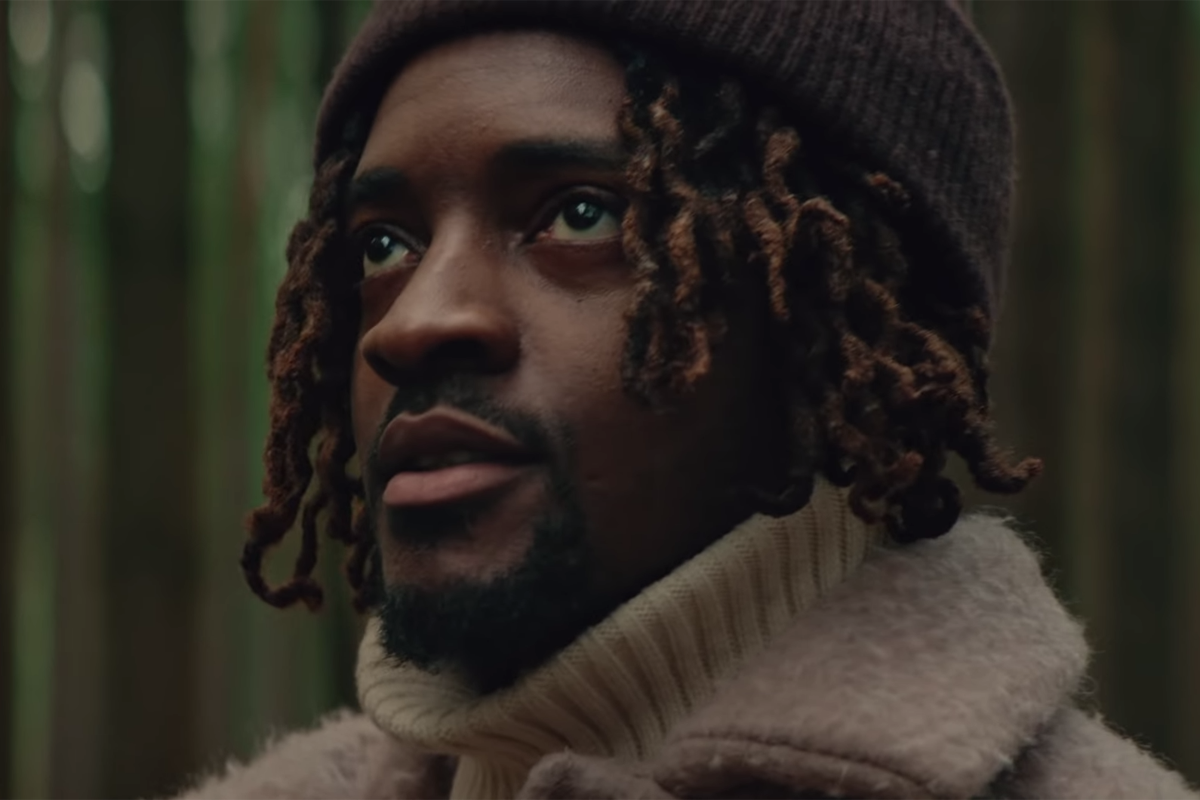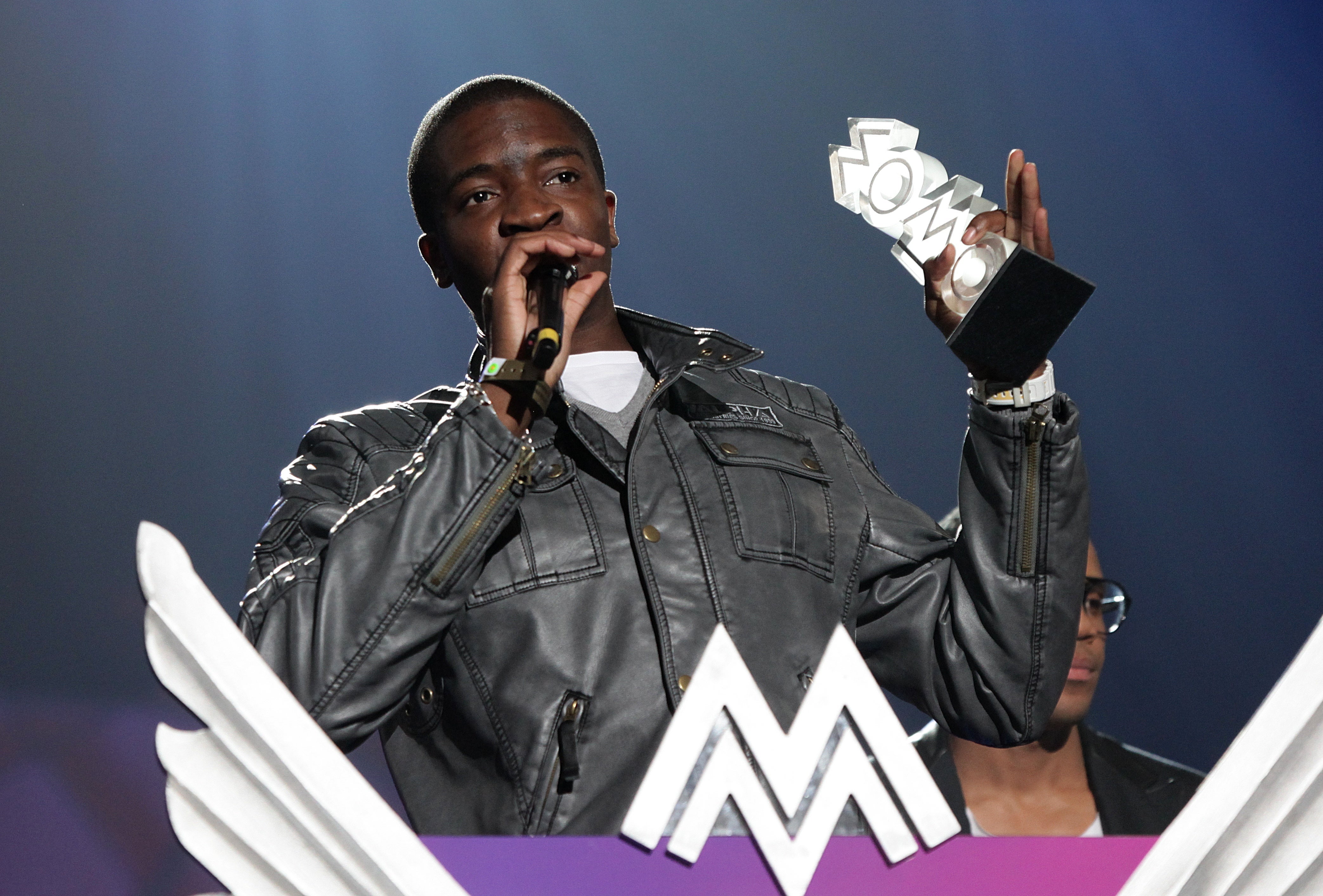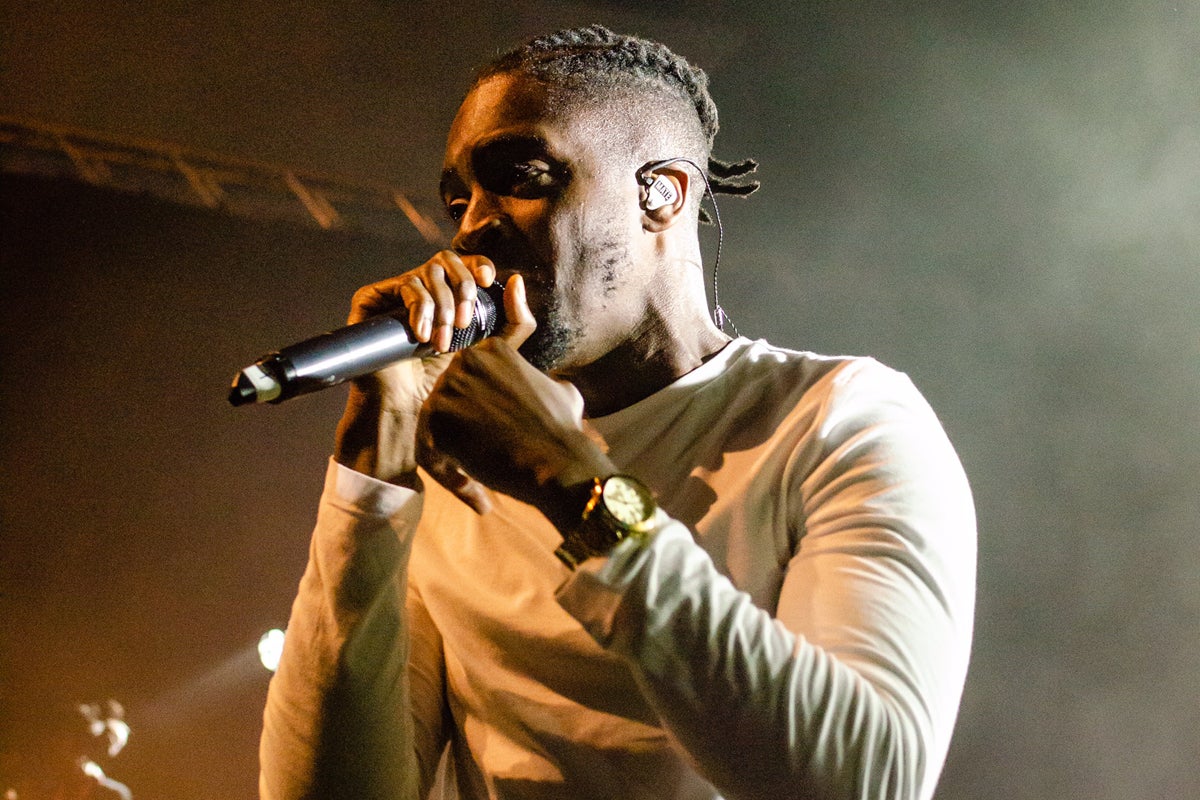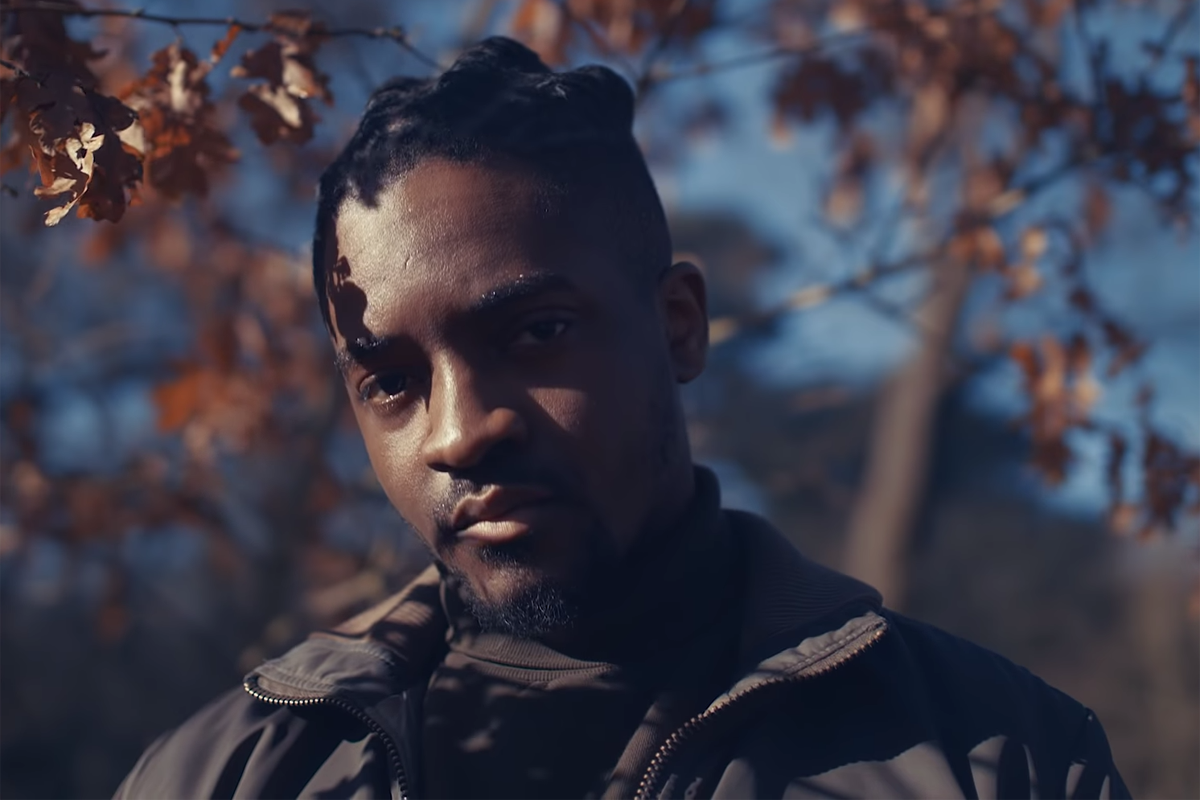Guvna B is guided by God: ‘My whole life I wanted to be normal’
Not only is Guvna B not a gangsta rapper but he never got caught up in drug-fuelled gang warfare. He speaks to Andy Martin


I think I may have finally seen God, thanks to Guvna B. He is the young, black, British rapper and double Mobo award winner who specialises in poignant and often uplifting songs, with a sublime swerve. His music, a mix of grime and hip-hop and gospel, gets millions of streams and he has around 100,000 followers across social media.
But I’ve been reading his new book, Unspoken – written during the first lockdown and published this month – and it brought home to me how much we have in common. I remain hitherto undiscovered as a rapper but we are both West Ham fans, born in the East End of London, and we both survived going to school in Essex. And, I now realise, we both belong to the neo-existentialist church.
Isaac Borquaye (“it rhymes with ‘walkway’”) asked me to call him Isaac rather than Guvna – his schoolboy nickname. When I spoke to him down the line he was not wearing trainers. He took the trouble to show me that his feet were garbed only in white socks. But trainers have loomed large in his life. Growing up on a Docklands council estate, he hungered for years after the perfect Nike trainers – Air Max 97s. And they had to be black.
He craved those trainers – “more than I wanted air in my lungs” – but he couldn’t afford them. Eventually, around the age of 14, he saved up enough to buy a cheap fake pair at Wembley Market. The soles started coming off two weeks later. But disillusionment had already set in before that.
The young Guvna B sensed that trainers weren’t the solution, they were the problem. As he writes: “For the first 27 years of my life, my overriding preoccupation was the image I put across to other people. Was I likeable? Was I gangster? Was my music all right? Did I look good? Did I have the right clothes, shoes, car to impress?”
The trainers symbolised his desire to “fit in” and be part of the club of young guys who ruled the streets. But when he got them (or an approximation) he understood that he never would fit in and would always be on the outside – an outsider who could speak on behalf of all those who live and die in the kingdom of outsiders. “My whole life I wanted to be normal,” he writes. “I wasn’t the most confident kid. I never fitted in. And then I started to embrace not being like everyone else.”
His family never had conversations over the dining table because they didn’t own a dining table – the flat was too small
But speaking, let alone rapping, didn’t come easy. “Verbally, I struggle,” says Borquaye. His family never had conversation over the dining table mainly because they didn’t own a dining table – the flat was too small. His Ghanaian dad didn’t say too much (“three words in a row for him was verbal diarrhoea”) and he didn’t expect his son to say much either. He was raised to keep his mouth shut. Boys don’t cry was the message.
“If I was ever frustrated with anything at school,” Borquaye says, “my dad would brush me off and say, ‘I’ve got to think about the mortgage’.” So the young Isaac kept his feelings bottled up and then finally exploded into song only after his dad died young and he was stricken with grief. He says that for him writing is a way to “have that conversation again and say it properly this time”.
There are two key themes running through his book: toxic masculinity and God (the subtitle is “Toxic masculinity and how I faced the man within the man”). Is masculinity necessarily toxic? Robert Webb for one thinks so. In How Not To Be A Boy he wrote, pithily, “if you want a vision of masculinity, imagine Dr Frankenstein being constantly bum-raped by his own monster while shouting, ‘I’m fine, everyone! I’m absolutely fine!’”

We know that boys are more likely to be autistic than girls (though the asymmetry is shrinking) and we also know that men are more likely to commit suicide. They are also far more likely to rape and kill and end up in jail. And, on a less criminal note, to go bald. Testosterone has a lot to answer for. On the other hand, most of this (not so much the baldness) is culturally conditioned. And the culture is changing or has changed.
Guvna B is a barometer of the way the zeitgeist is shaping up. In the midst of lockdown, even Radio 1 has embraced his brand. Not only is Guvna B not a gangsta rapper (his Everywhere and Nowhere was the bestselling “clean” rap album of 2020), but he managed not to get caught up in the drug-fuelled gang warfare and stabbings on the streets of London either. Guided, as he is, by God. God the saviour – for some not all, because even if you are chosen, conversely you still have to choose to be saved.
Unspoken is all about finding redemption on the road from repressive silence to soulful self-expression – from the dissociation of sensibility to Wordsworth’s “spontaneous overflow of powerful feelings”. Borquaye writes movingly of one of his turning points at school – when a teacher, Ms Aanonson, takes him to one side and tells him: “You’re good at English”.
Up util then he had been playing the class clown, full of bravado, low on self-esteem, and was fully expecting the usual telling off (to be fair, the praise was nuanced by a plea for better behaviour: “I don’t see why someone as good at English as you feels the need to cause trouble in class”). It was a moment of almost religious conversion to the cause of using language to speak about his own life and that of others.
There is a Christian vein to his lyrics but at the same time, as he rightly says, there is a ‘universalist’ tendency
His second realisation was more of a moral order. He was already writing and performing songs. But, as per the trainers, Borquaye was in thrall to contemporary fashion and wrote lyrics around “misogyny and swearing, money and violence”. And then one day the main man at his youth club has a word with him. “It’s not you,” he says. Guvna B realises that he could or should be writing about what he knows – faith, hope, and love (which abide, as the Bible says), but also grief. There is a Christian vein to his lyrics but at the same time, as he rightly says, there is a “universalist” tendency. “I’ve learned that people relate to pain/Guess everyone wants to know that they’re not alone in the rain” (“Fall on Me”).
Borquaye says that his dad dying “turned my world upside down”. But his dad is followed by close friends dying suddenly too – whether of illness or getting stabbed in the street. Where Stormzy will hymn “going in for the kill” and “having a beef”, Guvna B sings of the pain of seeing your contemporaries die needlessly – and the hope of catching up with some of them in heaven (he agrees that hell would probably be populated by all the people you’d been trying to avoid). I’d call him an alternative or indie rapper. With a lot of references to God. He has even made a podcast with the Archbishop of Canterbury.

His parents made sure he went to church every Sunday – the Calvary Charismatic Baptist Church in Canning Town. But ultimately he found a way of re-imagining a God that had nothing to do with people telling him what to do and did not resemble an extremely evangelical reverend. This was a personal God keeping a dedicated eye on Isaac Borquaye in particular with a complicated plan which seems to include a lot of suffering as well as all the stellar success too.
As I said, I have a lot in common with Guvna B. I went to church as a kid too, and (I confess) even went as stowaway to Catholic mass with my best friend. I’ve prayed for surf at a Hawaiian heiau and still seek the sublime in chapels and churches. And I think I finally got to see what the Guvna B God was all about. For one thing, his track “Cast Your Cares” with the Kingdom choir had me sobbing my eyes out. But then I have a soft spot for choirs. It has to be more than that.

As a student, I used to share a house with an obstetrician. Sometimes he would come home after overseeing the delivery of a newborn and say: “You might as well reserve a cell for that kid right now – I met the parents.” On the face of it, a harsh judgment from an overworked junior doctor. But the fact is that determinism is the default philosophy of our era. We tend to think that we are doomed by the irrevocable facts of our own DNA, and if not our genes, then it’s our upbringing or the local gangs or society at large or geography or history.
We are “fucked up”, as Philip Larkin memorably put it, if not by mum and dad then any number of the usual suspects. Maybe my obstetrician friend would have reserved a cell for Isaac Borquaye. As Guvna B puts it in his book: “In wider society, I was just an anonymous East-London estate kid lacking purpose and doomed to fail.” All those dark gangsta rap lyrics would have condemned him to die young, perhaps going out in a blaze – or more likely a pool – of glory.
But that’s not how it panned out and we have Unspoken and Everywhere and Nowhere to prove it. With a mix of fondness and sadness, Borquaye says: “My parents weren’t very affirming, even though they loved me. They never said, ‘you’re good at this’.” Guvna B gets his share of people telling him he is good, but the reality is he has to be independently self-affirming.
My parents weren’t very affirming, even though they loved me. They never said, ‘You’re good at this’
Centuries ago, many people believed in predestination: the idea that God had already decreed your fate, even before you were born and there was not a lot you could do about it. You were either going to heaven or hell, irrespective of what you did. It all came down to the grace of God, descending upon you – or not. Now, in the wake of genetic science, a lot of people suppose that our fate is already woven into a very small double helix and there is nothing to be done about that either. Meanwhile, religion has come to mean something like the opposite.
The God of Guvna B is the great spirit of anti-determinism. God is randomness and luck. God is the opposite of genetics and speaks of the more freewheeling soul rather than the all too susceptible body. Even amid the vast overarching dialectic of history, it’s still down to the individual to make certain choices. Even with all the “determinants” of ancestry and birth and gender and race and socioeconomic context, there is still a quantum margin of indeterminacy. A principle of uncertainty.
Beyond the statistics, God presides over this unquantifiable world of chance and volition. For Guvna B, God is the absurd, the difference between a rational calculus of life chances and the way things work out (whether it’s your best friend dropping dead or being able to dream up a hit rap tune). If the odds are stacked against you, then God B is on your side. God B is the god of longshots.
Reading about Guvna B’s life and listening to his music, I have the sense that there is always the possibility of transcendence, in a secular sort of way. But there is transcendence and transcendence – you choose. Borquaye’s “escape” is through his writing and his rapping. And, contrary to his upbringing and culture but to some extent influenced by his wife Emma, he goes to see a counsellor – to talk about death – and then another counsellor to talk about his marriage too. And even that gets into his songs somewhere. His stoic and optimistic message is you can change how you are feeling: “Feelings aren’t facts,” he says.
Borquaye senior didn’t say too much, he wasn’t omniscient and he wasn’t omnipotent, but he was a presence nevertheless and obscurely reassuring, and he wanted his son to be good – and then he died, and rose still higher in Guvna B’s estimation. Guvna B’s God reminds me a lot of him.




Join our commenting forum
Join thought-provoking conversations, follow other Independent readers and see their replies
Comments